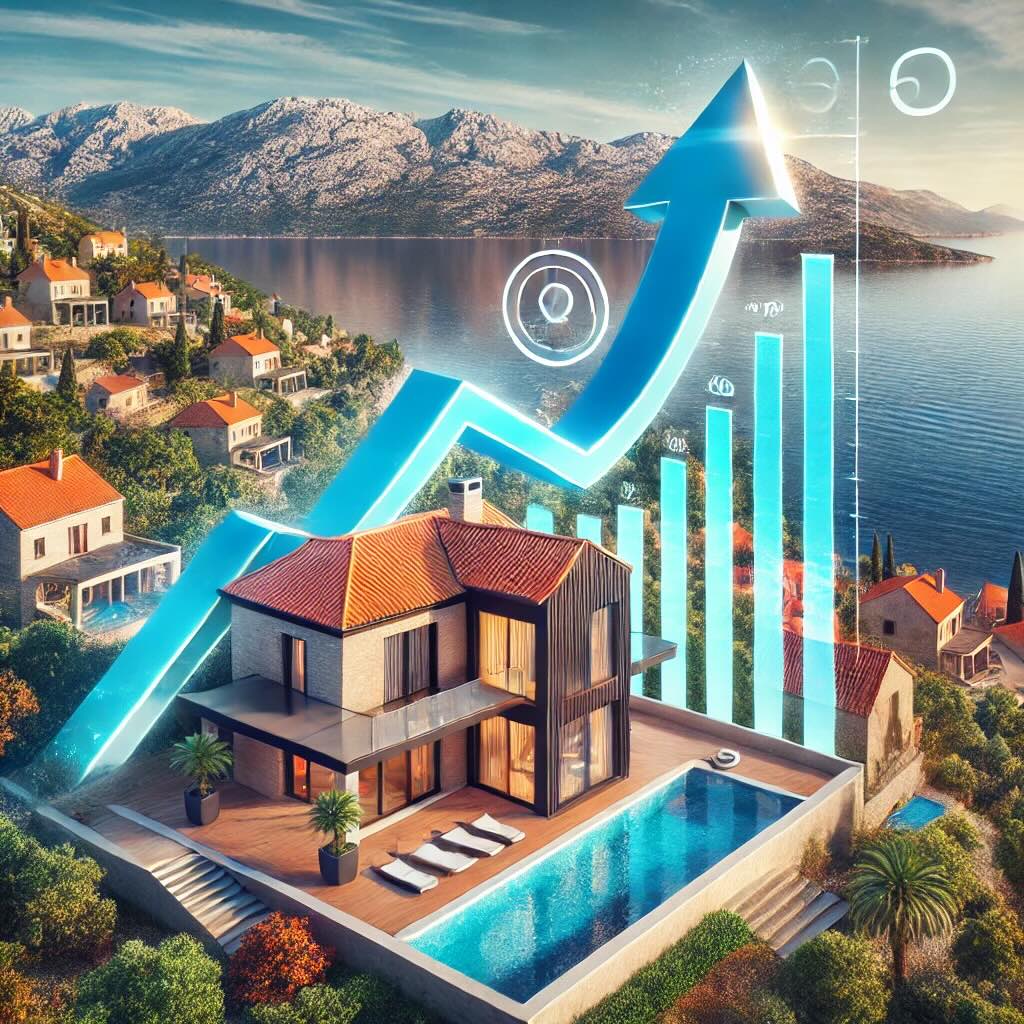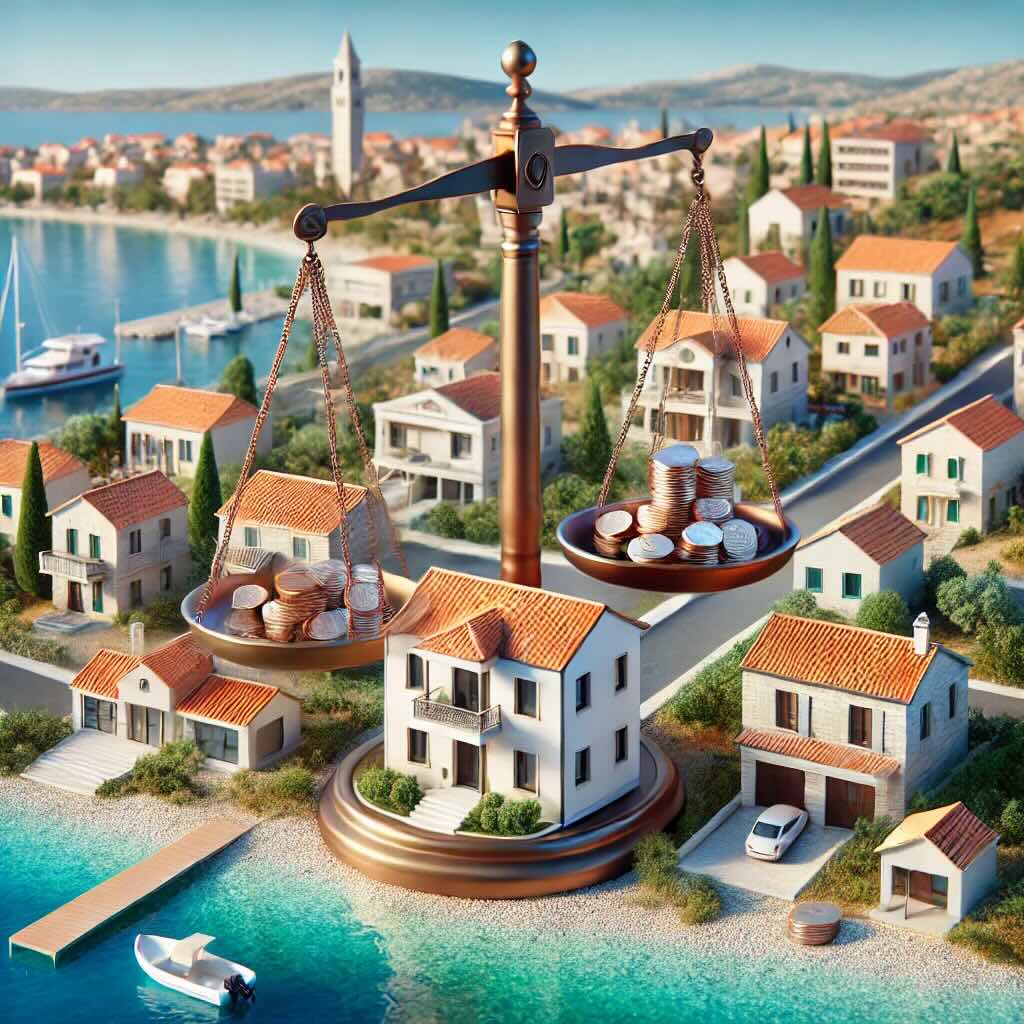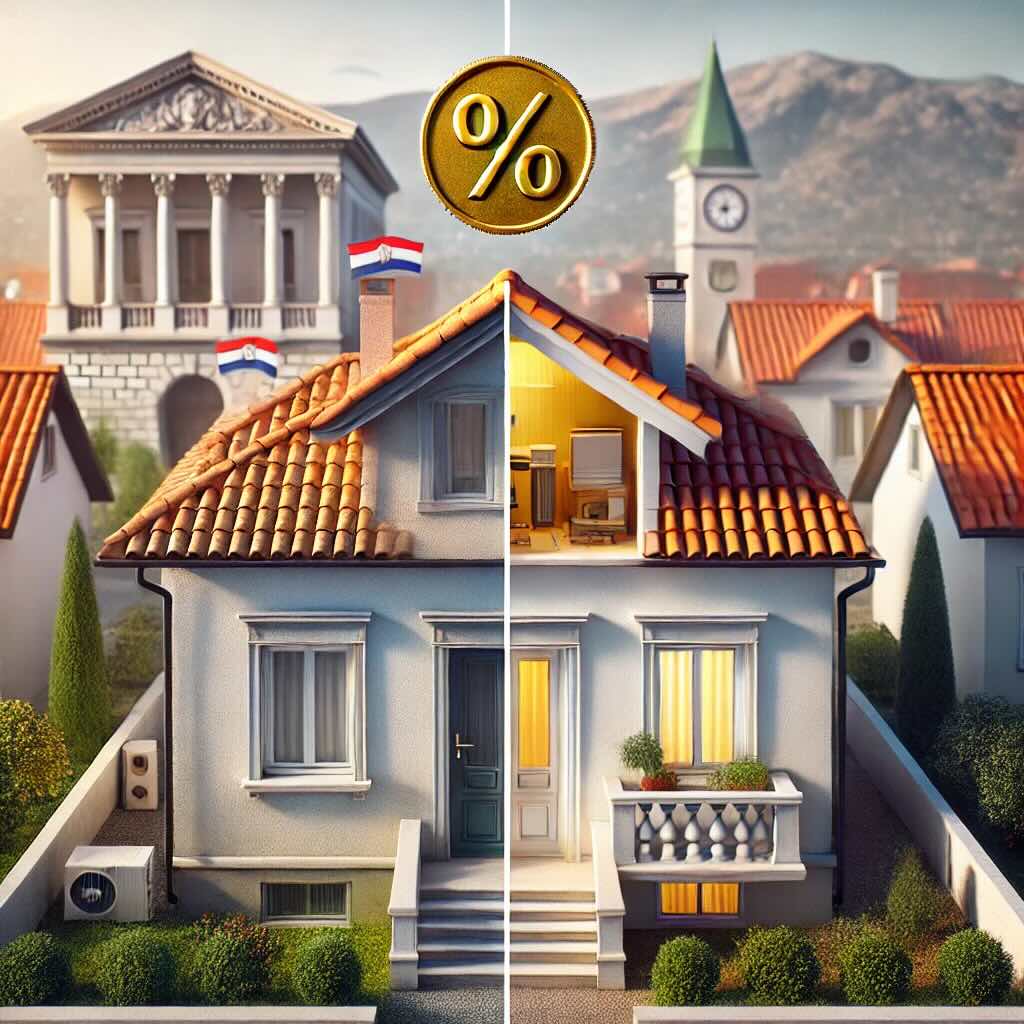All about Croatian real estate
Prices in Croatia in 2025 are marked by rising living and housing costs. The year 2025 brings significant economic challenges to Croatia. The country is grappling with increasing inflation, which affects the prices of essential goods, energy, and real estate. At the same time, tax changes are being implemented to regulate the real estate market and ensure more affordable housing for local residents. So, what are the main factors influencing Croatia's economic situation, and what developments can be expected? Rising Prices of Essential Goods One of the main problems faced by Croatian residents in 2025 is the continued increase in the prices of basic food and services. According to the latest statistics, food prices have risen by an average of 12% compared to the previous year. The most significant price increases have been recorded in: Bread and ...

Change of the Tax System in Croatia and Real Estate Tax as of 1.1.2025
From January 1, 2025, new legislation came into force in Croatia that significantly affects the tax burden in the real estate sector. In recent years, Croatia has been striving to attract foreign investors while responding to various socioeconomic factors, such as the growing shortage of affordable housing for local residents. Below you will find an overview of the key changes, their impact on owners and investors, as well as recommendations on how to best navigate the new situatio...

Will the Real Estate Bubble Burst in 2025?
How can one achieve homeownership? For many, this question remains a dream. Whether the situation will change in 2025 remains to be seen. The government has introduced the National Housing Plan, aiming to ensure affordable and sustainable housing and to create spaces serving this purpose. This is to be achieved through a combination of four instruments: financial, tax, land policy, and environmental-energy measures. Plans also include amending several laws or adopting new ones, such as the...

Real Estate Prices in Croatia: What Awaits Us in 2025
Real estate prices in Croatia are rising relentlessly. Research shows that 66.3% of households have difficulties covering basic living expenses. The situation is worse only in Greece, Bulgaria, and Romania. What is behind this trend, and what are the prospects for the future?
Istria and Kvarner: The Highest Prices in the Country
The Istrian County and Kvarner are among the most expensive areas in Croatia. In Istria, the price per square meter reaches up to 3,517 EUR, which is an incr...

Property Insurance in Croatia: What to Watch Out For and Specifics You Must Not Overlook
Purchasing a property in Croatia is a dream come true for many people. The sunny coastline, crystal-clear sea, and picturesque landscape attract investors from all over the world. However, with this dream comes the responsibility to protect your investment from unforeseen events. Property insurance in Croatia has its own specifics that need to be considered. In this article, we will focus on the key aspects of property insurance in Croatia, what to watch out for, and the specific risks, such...

Revolution in Croatian Real Estate Advertising – Completely Free for Everyone!
Croatia is becoming an increasingly popular destination, not only for holidays but also for real estate investments. Whether you are a real estate agency looking for new clients, or a private individual wishing to sell or rent out your property, we have great news for you! Croreal.com now offers completely free advertising of Croatian properties for everyone!
Why Croreal.com?
In the sea of advertising portals in Croatia, it is hard to find the right one. Most of them charge fees fo...

Tax Changes in Croatia and Impact on the Real Estate Market in 2025
How Adjustments in VAT and Income Tax Will Affect Investments in Croatian Real Estate
Marko Rakar, a renowned expert on tax policy, recently appeared on the show Novi dan on N1, where he discussed the planned introduction of a property tax in Croatia. He focused on how these changes, especially in the areas of Value Added Tax (VAT) and Income Tax, will impact the real estate market and potential investors.
Introduction of Property Tax in the EU Context
Rakar reminded that most E...

Commentary: Is the Property Tax for 2025 Fair?
The government has not yet disclosed the exact details regarding the new property tax, but Dubravka Jurlina Alibegović, former Minister of Administration and an expert from the Institute of Economics in Zagreb, has analyzed its pros and cons, noting that the available information is still limited.
Besides plans to tax properties that are not permanently occupied or long-term rented, it appears that the current tax on vacation homes will be partially replaced by a property tax, as ex...

Property Tax 2025: Currently Just a Proposal, Not a Reality
Ministry of Economy: Considered Property Tax and Intra-Party Elections.
Minister of Economy Ante Šušnjar recently gave an interview to Dnevnik Nove TV, where he addressed current issues regarding the proposed tax reform, specifically the property tax, as well as the upcoming intra-party elections in the Homeland Movement.
Property Tax: Just a Proposal, Not a Reality
In response to questions about potential taxation on second properties, Minister Šušnjar emphasized that this is ...

The Croatian Government Plans Tax Reforms and New Rules for Rentals
The Deputy Prime Minister and Minister of Finance, Marko Primorac, today outlined the contours of a new tax reform package, which includes the introduction of a property tax by transforming the existing tax on recreational properties and unifying the tax regime for long-term and short-term rentals.
In a statement following the government session, Primorac said that the government had previously set a goal to increase the fairness of the tax system and gradually shift the tax burden fr...